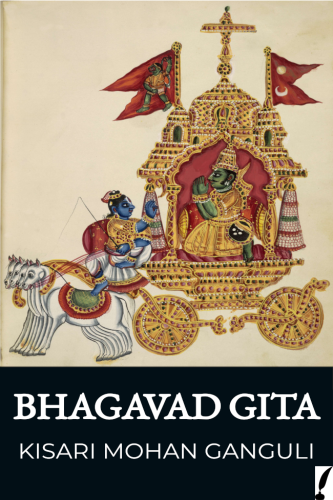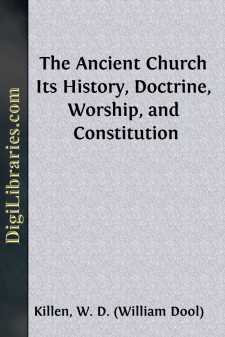Categories
- Antiques & Collectibles 13
- Architecture 36
- Art 48
- Bibles 22
- Biography & Autobiography 813
- Body, Mind & Spirit 142
- Business & Economics 28
- Children's Books 17
- Children's Fiction 14
- Computers 4
- Cooking 94
- Crafts & Hobbies 4
- Drama 346
- Education 46
- Family & Relationships 57
- Fiction 11829
- Games 19
- Gardening 17
- Health & Fitness 34
- History 1377
- House & Home 1
- Humor 147
- Juvenile Fiction 1873
- Juvenile Nonfiction 202
- Language Arts & Disciplines 88
- Law 16
- Literary Collections 686
- Literary Criticism 179
- Mathematics 13
- Medical 41
- Music 40
- Nature 179
- Non-Classifiable 1768
- Performing Arts 7
- Periodicals 1453
- Philosophy 64
- Photography 2
- Poetry 896
- Political Science 203
- Psychology 42
- Reference 154
- Religion 513
- Science 126
- Self-Help 84
- Social Science 81
- Sports & Recreation 34
- Study Aids 3
- Technology & Engineering 59
- Transportation 23
- Travel 463
- True Crime 29
A History of American Christianity
Description:
Excerpt
CHAPTER I.
PROVIDENTIAL PREPARATIONS FOR THE DISCOVERY OF AMERICA—SPIRITUAL REVIVAL THROUGHOUT CHRISTENDOM, AND ESPECIALLY IN THE CHURCH OF SPAIN.
The heroic discovery of America, at the close of the fifteenth century after Christ, has compelled the generous and just admiration of the world; but the grandeur of human enterprise and achievement in the discovery of the western hemisphere has a less claim on our admiration than that divine wisdom and controlling providence which, for reasons now manifested, kept the secret hidden through so many millenniums, in spite of continual chances of disclosure, until the fullness of time.
How near, to "speak as a fool," the plans of God came to being defeated by human enterprise is illustrated by unquestioned facts. The fact of medieval exploration, colonization, and even evangelization in North America seems now to have emerged from the region of fanciful conjecture into that of history. That for four centuries, ending with the fifteenth, the church of Iceland maintained its bishops and other missionaries and built its churches and monasteries on the frozen coast of Greenland is abundantly proved by documents and monuments. Dim but seemingly unmistakable traces are now discovered of enterprises, not only of exploration and trade, but also of evangelization, reaching along the mainland southward to the shores of New England. There are vague indications that these beginnings of Christian civilization were extinguished, as in so many later instances, by savage massacre. With impressive coincidence, the latest vestige of this primeval American Christianity fades out in the very year of the discovery of America by Columbus.
By a prodigy of divine providence, the secret of the ages had been kept from premature disclosure during the centuries in which, without knowing it, the Old World was actually in communication with the New. That was high strategy in the warfare for the advancement of the kingdom of God in the earth. What possibilities, even yet only beginning to be accomplished, were thus saved to both hemispheres! If the discovery of America had been achieved four centuries or even a single century earlier, the Christianity to be transplanted to the western world would have been that of the church of Europe at its lowest stage of decadence. The period closing with the fifteenth century was that of the dense darkness that goes before the dawn. It was a period in which the lingering life of the church was chiefly manifested in feverish complaints of the widespread corruption and outcries for "reformation of the church in head and members." The degeneracy of the clergy was nowhere more manifest than in the monastic orders, that had been originally established for the express purpose of reviving and purifying the church. That ancient word was fulfilled, "Like people, like priest." But it was especially in the person of the foremost official representative of the religion of Jesus Christ that that religion was most dishonored. The fifteenth century was the era of the infamous popes. By another coincidence which arrests the attention of the reader of history, that same year of the discovery by Columbus witnessed the accession of the most infamous of the series, the Borgia, Alexander VI., to his short and shameful pontificate.
Let it not be thought, as some of us might be prone to think, that the timeliness of the discovery of the western hemisphere, in its relation to church history, is summed up in this, that it coincided with the Protestant Reformation, so that the New World might be planted with a Protestant Christianity. For a hundred years the colonization and evangelization of America were, in the narrowest sense of that large word, Catholic, not Protestant. But the Catholicism brought hither was that of the sixteenth century, not of the fifteenth. It is a most one-sided reading of the history of that illustrious age which fails to recognize that the great Reformation was a reformation of the church as well as a reformation from the church....












